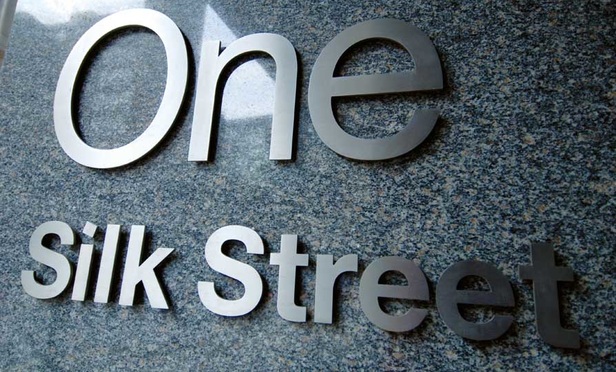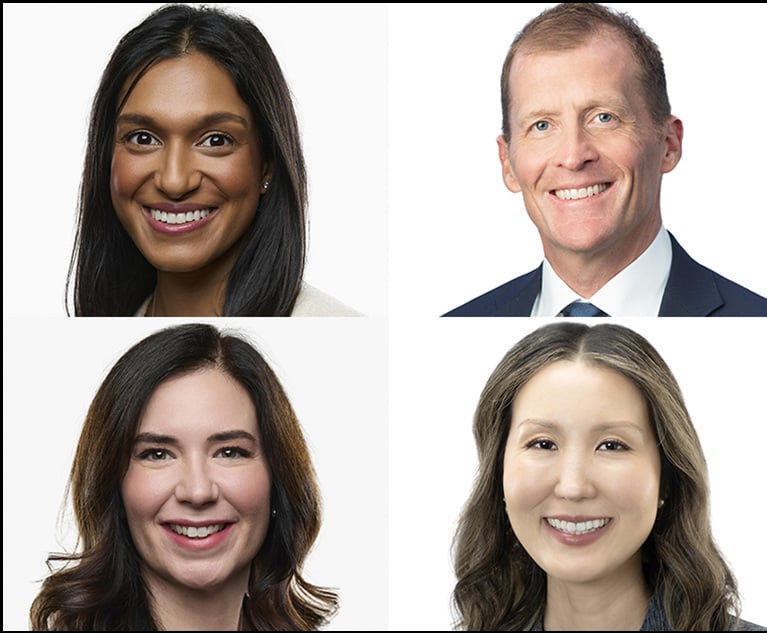Linklaters hikes PEP by 7.8% as revenue jumps nearly 10%
Firm becomes first magic circle player to reveal 2016-17 financial results
June 29, 2017 at 07:30 AM
4 minute read

Linklaters has become the first magic circle firm to announce its 2016-17 results, posting a 7.8% hike in profits per equity partner (PEP) alongside a revenue rise of almost 10%.
The magic circle firm's PEP has risen to £1.568m, up from £1.455m last year, an increase that came as the firm grew its equity partnership by 1% from an average of 435.7 last year to 440.6 this year.
Total revenues for the 12-month period rose 9.8%, up from £1.31bn to £1.44bn. The firm said the results represent a 1.7% increase at constant currency.
Last year, Linklaters reported a 3.5% increase in turnover and a 2.5% increase in PEP.
Pre-tax profit this year was £664.4m, equating to an 8.6% increase on last year's figure of £611.9m, but flat at constant currency.
Managing partner Gideon Moore said: "I am quite pleased with the overall performance. There were a number of well publicised geopolitical events, like Brexit and Trump, and other things around the globe that had an impact on business, so to come out up on a constant currency basis is a good result. If someone had offered me that at the start of the year, I would have taken it."
Major deals for the firm in the last year include advising on Anheuser-Busch InBev's acquisition of rival brewer SAB Miller and acting for Unilever on its defence of Kraft's multibillion-dollar takeover bid.
"We have a fantastic global M&A franchise so making sure the market recognises us a top-tier M&A firm remains a key priority," said Moore.
Moore picked out the US and Southeast Asia as regions that did particularly well. "Our team out in the States had a very good year – that was very pleasing. Southeast Asia also rallied and had a good year," he said.
In terms of the upcoming financial year, Moore said that implementation of the firm's new strategy would be a key priority.
Moore and senior partner Charlie Jacobs launched the new strategy at the firm's partner conference in Monaco in April. Key changes include the way partner performance is looked at, including a move away from billing targets and annual partner reviews.
Moore said: "Everyone warned me that putting together a strategy refresh was the easy bit, but the implementation and execution is the tricky area. A large part of what we are doing is rallying around the refresh and implementation, so we can give the clients the service they want."
Moore and Jacobs are keen to inculcate into partners a sense of responsibility to themselves and to others, and move away from a culture measured by hitting individual targets. Moore said that he wants team leaders to "communicate rather than looking at a spreadsheet", when monitoring performance.
Jacobs said that partners should be able to "look each other in the eye" and answer the question: 'Who are your clients and what are you working on?'
"You don't really need numbers – you either have clients or you don't," he said.
Moore added: "At one level you could form the view that this is a little cuddly, in that we are taking away these individual metrics, but actually what it does is it requires partners to explain to our fellow partners what we are contributing to our partnership."
The changes mark a break from the firm's previous metrics-driven regimes. Former managing partner Tony Angel is credited by many for his efforts to instill greater financial discipline, but his successor and protege Simon Davies faced difficulties in his latter years at the firm, with some partners unhappy with management decisions and how they were communicated.
Jacobs draws on a rugby analogy. "Like what [rugby coach] Eddie Jones did with England; you can have the same team under [previous head coach] Stuart Lancaster not doing terribly well, but if you get inside their minds and motivate people, you can make quite a behavioural change," he says.
This content has been archived. It is available through our partners, LexisNexis® and Bloomberg Law.
To view this content, please continue to their sites.
Not a Lexis Subscriber?
Subscribe Now
Not a Bloomberg Law Subscriber?
Subscribe Now
NOT FOR REPRINT
© 2025 ALM Global, LLC, All Rights Reserved. Request academic re-use from www.copyright.com. All other uses, submit a request to [email protected]. For more information visit Asset & Logo Licensing.
You Might Like
View All
Long Hours, Lack Of Boundaries: Associates In India Are Leaving Their Firms


X-odus: Why Germany’s Federal Court of Justice and Others Are Leaving X
Trending Stories
- 1Goodwin Procter Relocates to Renewable-Powered Office in San Francisco’s Financial District
- 2'Didn't Notice Patient Wasn't Breathing': $13.7M Verdict Against Anesthesiologists
- 3'Astronomical' Interest Rates: $1B Settlement to Resolve Allegations of 'Predatory' Lending Cancels $534M in Small-Business Debts
- 4Senator Plans to Reintroduce Bill to Split 9th Circuit
- 5Law Firms Converge to Defend HIPAA Regulation
Who Got The Work
J. Brugh Lower of Gibbons has entered an appearance for industrial equipment supplier Devco Corporation in a pending trademark infringement lawsuit. The suit, accusing the defendant of selling knock-off Graco products, was filed Dec. 18 in New Jersey District Court by Rivkin Radler on behalf of Graco Inc. and Graco Minnesota. The case, assigned to U.S. District Judge Zahid N. Quraishi, is 3:24-cv-11294, Graco Inc. et al v. Devco Corporation.
Who Got The Work
Rebecca Maller-Stein and Kent A. Yalowitz of Arnold & Porter Kaye Scholer have entered their appearances for Hanaco Venture Capital and its executives, Lior Prosor and David Frankel, in a pending securities lawsuit. The action, filed on Dec. 24 in New York Southern District Court by Zell, Aron & Co. on behalf of Goldeneye Advisors, accuses the defendants of negligently and fraudulently managing the plaintiff's $1 million investment. The case, assigned to U.S. District Judge Vernon S. Broderick, is 1:24-cv-09918, Goldeneye Advisors, LLC v. Hanaco Venture Capital, Ltd. et al.
Who Got The Work
Attorneys from A&O Shearman has stepped in as defense counsel for Toronto-Dominion Bank and other defendants in a pending securities class action. The suit, filed Dec. 11 in New York Southern District Court by Bleichmar Fonti & Auld, accuses the defendants of concealing the bank's 'pervasive' deficiencies in regards to its compliance with the Bank Secrecy Act and the quality of its anti-money laundering controls. The case, assigned to U.S. District Judge Arun Subramanian, is 1:24-cv-09445, Gonzalez v. The Toronto-Dominion Bank et al.
Who Got The Work
Crown Castle International, a Pennsylvania company providing shared communications infrastructure, has turned to Luke D. Wolf of Gordon Rees Scully Mansukhani to fend off a pending breach-of-contract lawsuit. The court action, filed Nov. 25 in Michigan Eastern District Court by Hooper Hathaway PC on behalf of The Town Residences LLC, accuses Crown Castle of failing to transfer approximately $30,000 in utility payments from T-Mobile in breach of a roof-top lease and assignment agreement. The case, assigned to U.S. District Judge Susan K. Declercq, is 2:24-cv-13131, The Town Residences LLC v. T-Mobile US, Inc. et al.
Who Got The Work
Wilfred P. Coronato and Daniel M. Schwartz of McCarter & English have stepped in as defense counsel to Electrolux Home Products Inc. in a pending product liability lawsuit. The court action, filed Nov. 26 in New York Eastern District Court by Poulos Lopiccolo PC and Nagel Rice LLP on behalf of David Stern, alleges that the defendant's refrigerators’ drawers and shelving repeatedly break and fall apart within months after purchase. The case, assigned to U.S. District Judge Joan M. Azrack, is 2:24-cv-08204, Stern v. Electrolux Home Products, Inc.
Featured Firms
Law Offices of Gary Martin Hays & Associates, P.C.
(470) 294-1674
Law Offices of Mark E. Salomone
(857) 444-6468
Smith & Hassler
(713) 739-1250









